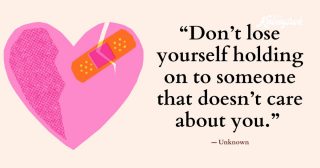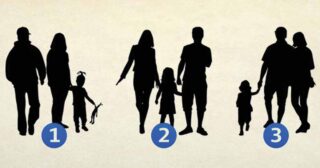Why You Should Cut Toxic People Out of Your Life (Even If They Are Your Parents)
Cutting toxic people out of your life, even if they are your parents, is a difficult but sometimes necessary decision to protect your mental and emotional well-being. While the idea of family bonds is deeply ingrained in most cultures, it's important to recognize that not all family relationships are healthy. Toxic relationships, including those with parents, can drain your energy, negatively affect your self-esteem, and prevent personal growth.
Here are several key reasons why it’s important to distance yourself from toxic people, even if they are your parents:
1. Protecting Your Mental Health
- Why It’s Important: Toxic parents may engage in emotionally abusive behavior, such as constant criticism, manipulation, guilt-tripping, or gaslighting. These behaviors can take a serious toll on your mental health, leading to anxiety, depression, and emotional instability.
- The Impact: Cutting off or limiting contact with toxic parents allows you to protect your mental health, enabling you to focus on healing and finding peace.
2. Reducing Stress and Anxiety
- Why It’s Important: Constant exposure to toxic behavior can create ongoing stress and anxiety, as you’re always on edge or walking on eggshells around them. This can lead to chronic stress, which affects both your physical and mental health.
- The Impact: By distancing yourself, you remove a major source of stress from your life. This can lead to improved emotional balance, better sleep, and greater overall well-being.
3. Allowing Personal Growth
- Why It’s Important: Toxic parents often undermine your self-esteem or try to control your life decisions, stunting your personal growth. They may hold you back from pursuing your goals or dreams by instilling fear, doubt, or guilt.
- The Impact: Cutting them off can free you from their negative influence, allowing you to explore your true potential and pursue your passions without feeling limited by their judgments or expectations.
4. Breaking the Cycle of Emotional Abuse
- Why It’s Important: Toxic relationships often involve cycles of emotional abuse, where you are hurt repeatedly over time. This pattern can create deep wounds and emotional scars that are difficult to heal while you remain in the toxic environment.
- The Impact: Breaking contact with toxic parents can help you end the cycle of emotional abuse, allowing you to start the healing process and build healthier relationships in the future.
5. Setting Healthy Boundaries
- Why It’s Important: Toxic parents may have poor boundaries, constantly intruding in your personal life, disregarding your needs, or demanding more from you than is reasonable. Without boundaries, you may feel overwhelmed and powerless.
- The Impact: Distancing yourself from them can help you establish healthy boundaries, where you have control over how much interaction you have and how much of your emotional energy you are willing to give.
6. Prioritizing Your Own Happiness
- Why It’s Important: Toxic parents often prioritize their own emotional needs over yours, leaving you feeling neglected, undervalued, and drained. This dynamic can prevent you from living a fulfilling and happy life.
- The Impact: Cutting off or reducing contact with toxic parents allows you to prioritize your own happiness and emotional needs. It gives you the space to focus on creating a life that brings you joy and fulfillment.
7. Avoiding Codependency
- Why It’s Important: Toxic parents may foster codependency, where they rely on you to fulfill their emotional needs or maintain an unhealthy control over your life. This can trap you in a situation where you feel responsible for their happiness or well-being.
- The Impact: Distancing yourself from this toxic dynamic can free you from feeling responsible for their emotions, allowing you to develop a sense of independence and autonomy.
8. Healing from Childhood Trauma
- Why It’s Important: Toxic parents may have caused emotional trauma during your childhood, which can continue to affect your self-esteem, relationships, and emotional health in adulthood. Being in constant contact with them can reopen old wounds and make healing difficult.
- The Impact: Removing yourself from the toxic environment allows you to begin the process of healing from past trauma, giving you the space to work through your emotions and rebuild your sense of self-worth.
9. Fostering Healthier Relationships
- Why It’s Important: Growing up in a toxic environment can influence how you approach relationships in adulthood. You may be more likely to tolerate unhealthy behavior in romantic or platonic relationships because it feels familiar.
- The Impact: By cutting off toxic relationships, you give yourself the opportunity to develop healthier connections with people who respect and support you. This can lead to more fulfilling and balanced relationships moving forward.
10. Creating a Safe and Positive Environment
- Why It’s Important: A toxic home environment can feel suffocating and hostile, making it difficult for you to thrive emotionally. Toxic parents can create a negative atmosphere that leaves you feeling unsafe or unsupported.
- The Impact: Removing yourself from the toxic environment allows you to create a safe, positive, and supportive space for yourself. This gives you the emotional security needed to grow and flourish.
Conclusion: It's Not About Guilt, It's About Survival
Cutting toxic parents out of your life is not an easy decision, but it can be necessary for your emotional and mental well-being. While society often emphasizes the importance of family loyalty, it’s crucial to remember that maintaining toxic relationships, even with family, can harm your health. By prioritizing your happiness, setting boundaries, and distancing yourself from toxic influences, you can protect your emotional well-being, heal from past traumas, and cultivate healthier relationships in the future.
Deciding to remove toxic people from your life doesn’t mean you don’t love them—it means you are choosing to love yourself more.










